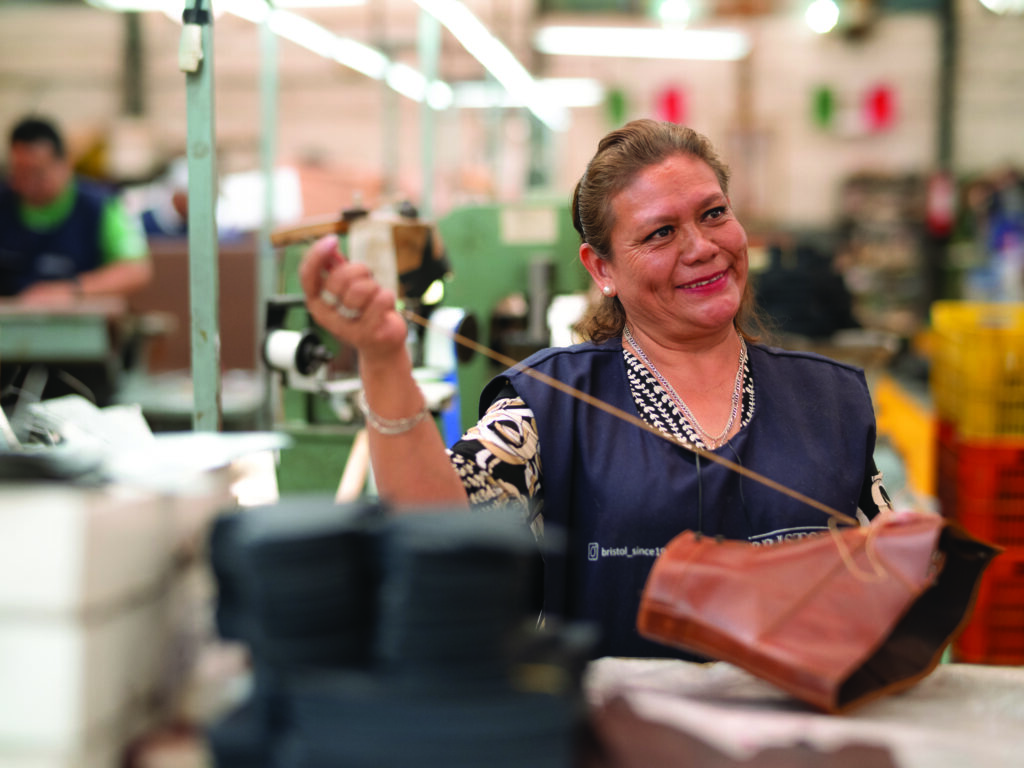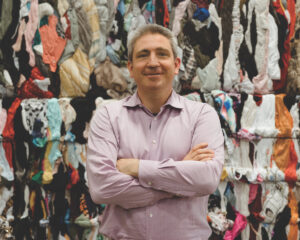Nisolo: Creating a More Ethical Fashion Industry
Read Time
5 min read
Posted on
May 9, 2024

The ethical fashion, footwear, and accessory brand brings hope and transparency to the damaged world of fashion.
By Patrick Woodyard
The deeper you dig, the more you’ll come to realize how broken the fashion industry is today. Yet, there is hope — even for the pragmatist. Brands and manufacturers with a commitment to better sustainability practices are on the rise, fighting to allow the fashion industry to reach its hidden potential as a positive force for good. Since the sustainability movement’s inception, we’ve remained proud at Nisolo to fight alongside similar organizations. Here’s a bit about the “why” behind Nisolo and where it all began.
A Rude Awakening
As an undergrad, I studied global economics and business and spent a fair amount of my time in developing countries learning how international business can have a very positive or very negative impact on the world. Shortly after graduating, I moved to Peru where I pursued an opportunity in microfinance with the goal of helping women grow small businesses. Little did I know, my job was in Peru’s shoemaking capital, and I was soon introduced to the centuries-old, fascinating art form of shoemaking. Blown away by the skill that abounded, I was frustrated to learn that the producers I met faced such horrible working conditions and unjust compensation.
I knew things could be different, and I saw massive potential to drive transformational change in this community by starting Nisolo. I’d soon learn what most consumers (blinded by the allure of cheap prices) remain completely unaware of today: The explosive growth of the global fashion industry has fared well for some yet has been violently unjust for most everyone else. The truth is that low wages and poor working conditions are rampant, with an estimated 95% of workers in the fashion industry today not paid a living wage that can cover their most basic needs.
Due to exorbitant water usage, the irresponsible disposal of waste, the exponential growth of manmade non-biodegradable fibers such as polyester, and filthy carbon emissions from coal-powered factories in the developing world, the planet isn’t faring too well either. In fact, the fashion industry is estimated to be one of the top five most pollutive industries in the world, emitting more carbon than the international aviation and shipping industries combined.
A Better Way
To flip the script, we created Nisolo as a brand that would care for the planet and the people within our supply chain just as much as the end consumer. Ultimately, our goal is to play our part in pushing the fashion industry in a more sustainable direction. And as a brand focused on sustainability, we know we’re far from perfect.
We recently raised the bar for transparency by launching the Nisolo Sustainability Facts Label to help hold ourselves more accountable in hopes the industry will begin to do the same. Leveraging the research of sustainability experts around the world, we created this to empower consumers to make better choices and to invite brands like us to strengthen their approaches to sustainability. From B Corp to Leather Working Group to Climate Neutral, Fair Trade USA, Higg Index, FLA, SA8000, Textile Exchange, Good On You, Re/Make to you name it, we took it all in to ensure our label accounted for what experts commonly deem most critical to a sustainable approach.
With 10 categories scored across people and planet backed by 200 public-facing data points, the Sustainability Facts Label is one of the most comprehensive yet digestible evaluation tools the fashion industry has seen to date. Each Nisolo product now carries this label as well as a QR code that links directly to the 200 data points evaluated across people and planet for that specific product.
Empowering the Future
Recalling that business can have a very negative or positive impact on the world, our motivation comes not only from how bad things have become in our industry but also from the opportunity ahead. This is an industry that employs hundreds of millions of the world’s poorest people. What would the world look like for future generations in these communities if rather than systematically holding people in a never-ending cycle of poverty, proper treatment and a fair opportunity were guaranteed for all producers? I’ve seen firsthand the impact this has had on our shoemakers and the future of their children. We hope to see this happen worldwide.
As consumers, we must remember the immense power we hold through the dollars we spend. We all want a better industry and a better world. And that’s why we encourage one another to dig deeper into our favorite brands’ supply chains. If they are not visibly demonstrating a move in the right direction, let’s ask for greater transparency where it’s lacking.
Ultimately, the sustainability journey is a marathon, not a sprint. By working together, we believe we can drive monumental transformation in the fashion industry within our lifetime.
Overview
Nisolo, an ethical fashion brand founded to improve conditions for shoemakers in Peru, aims to transform the harmful fashion industry by prioritizing both people and the planet. With an estimated 95% of fashion workers lacking a living wage and the industry ranking among the top five most polluting globally, Nisolo introduced a comprehensive Sustainability Facts Label to enhance transparency and accountability. The initiative is designed to empower consumers and encourage other brands to adopt more sustainable practices. Targeted at conscious shoppers and industry stakeholders,
AI-Generated Overview.






